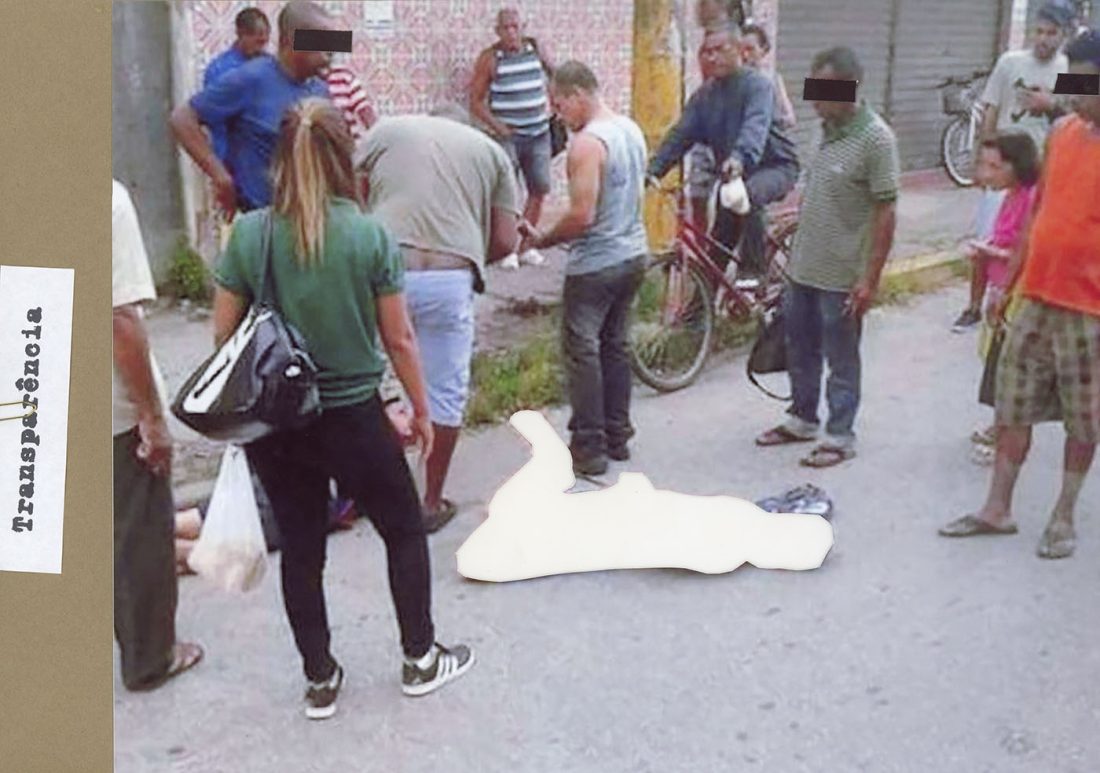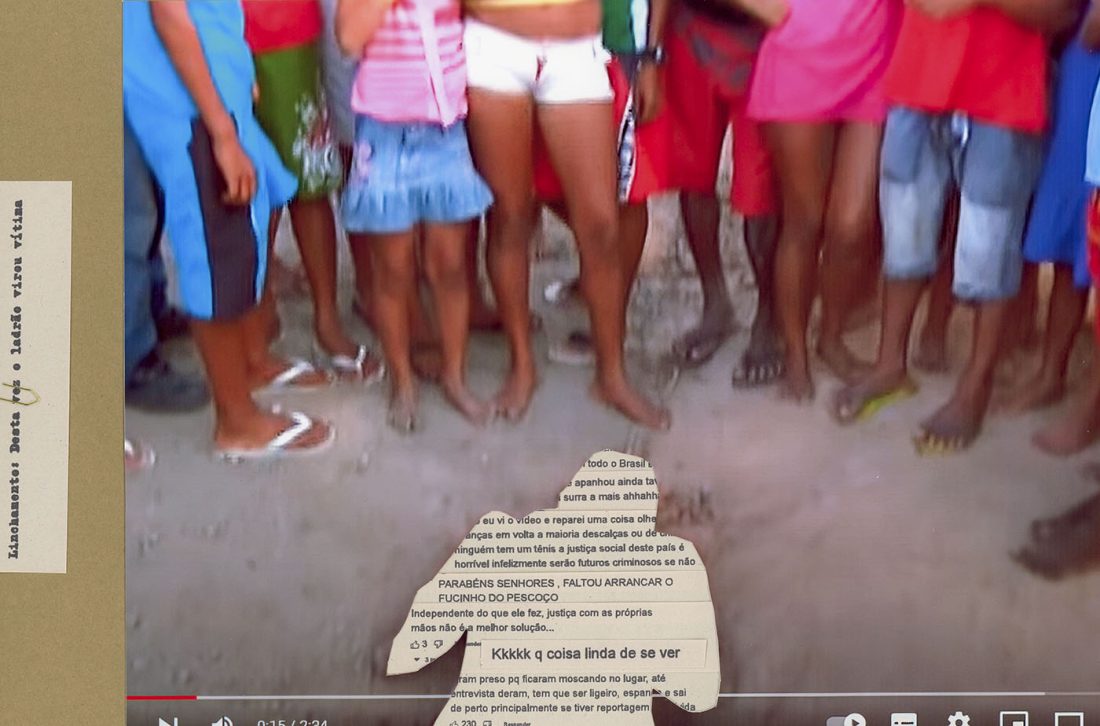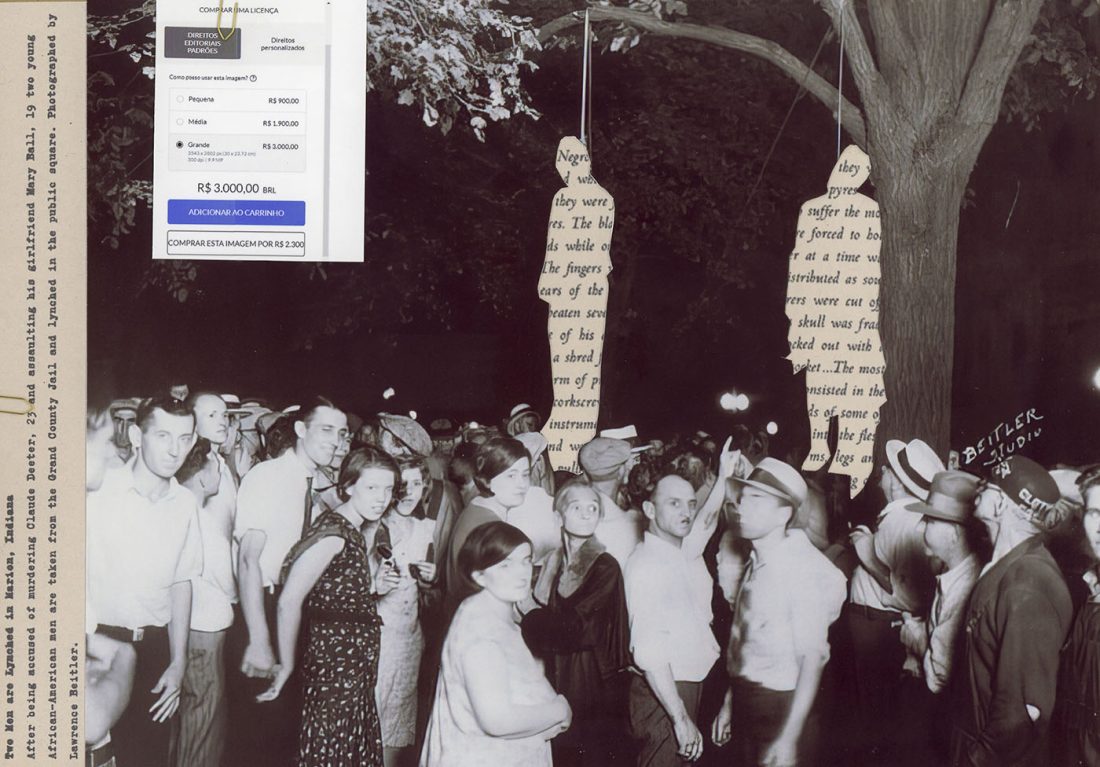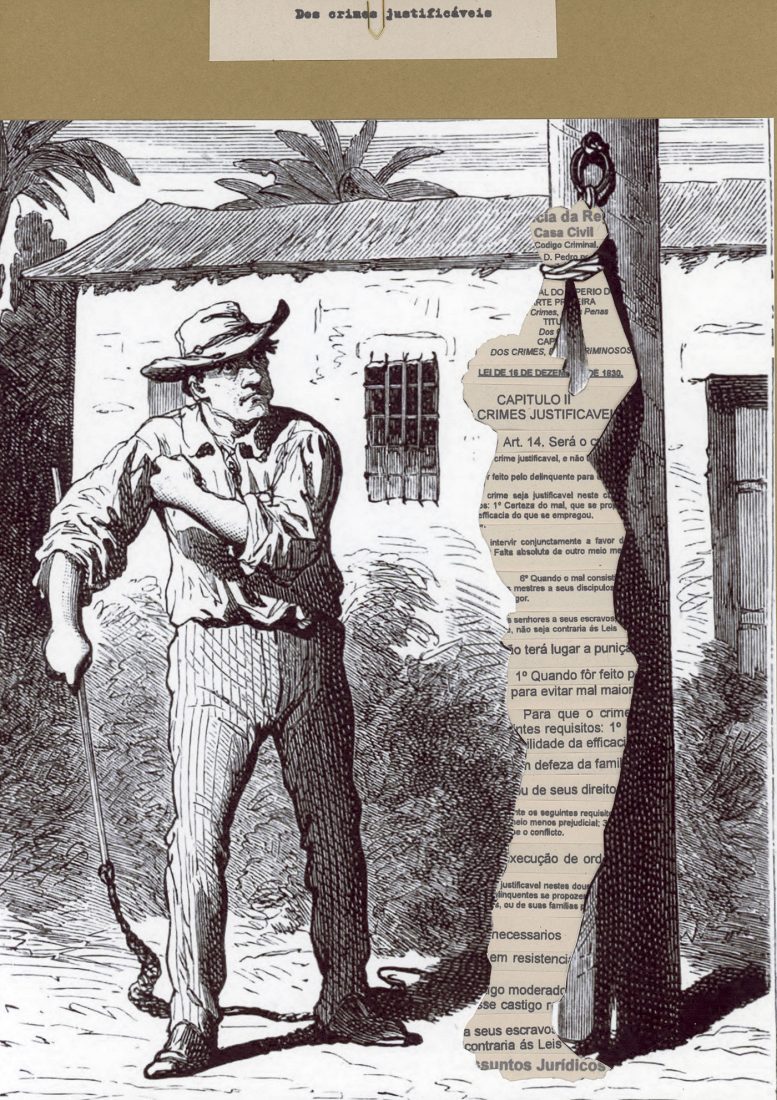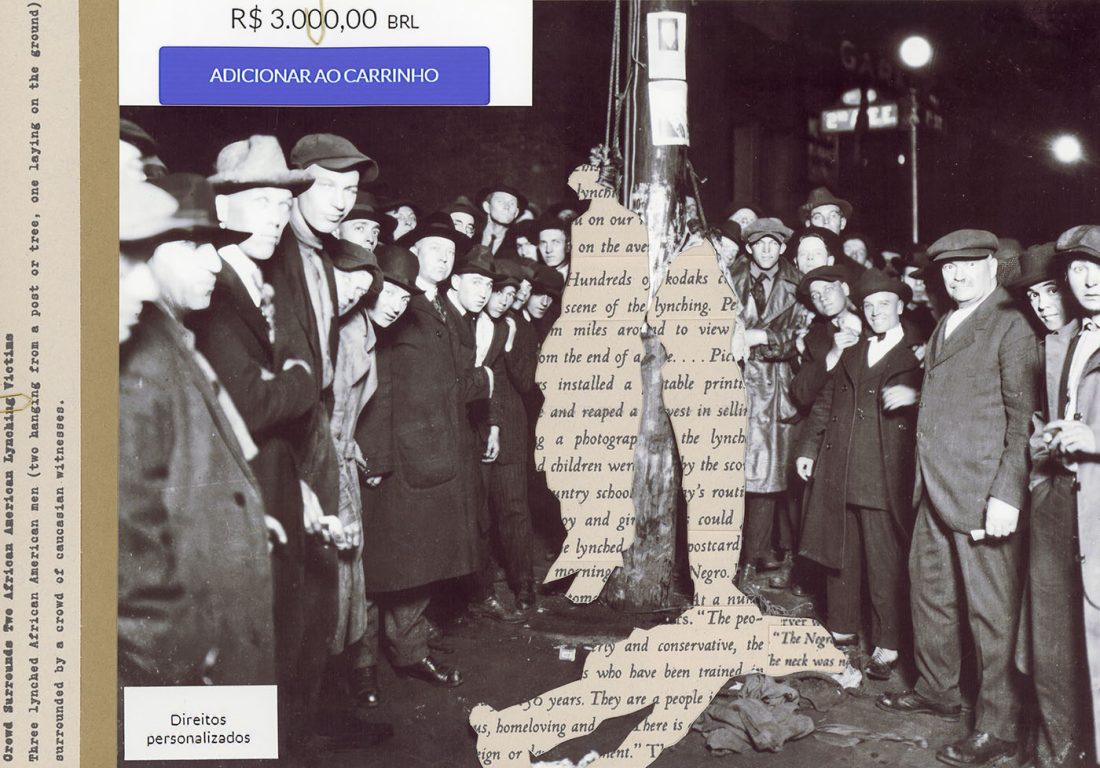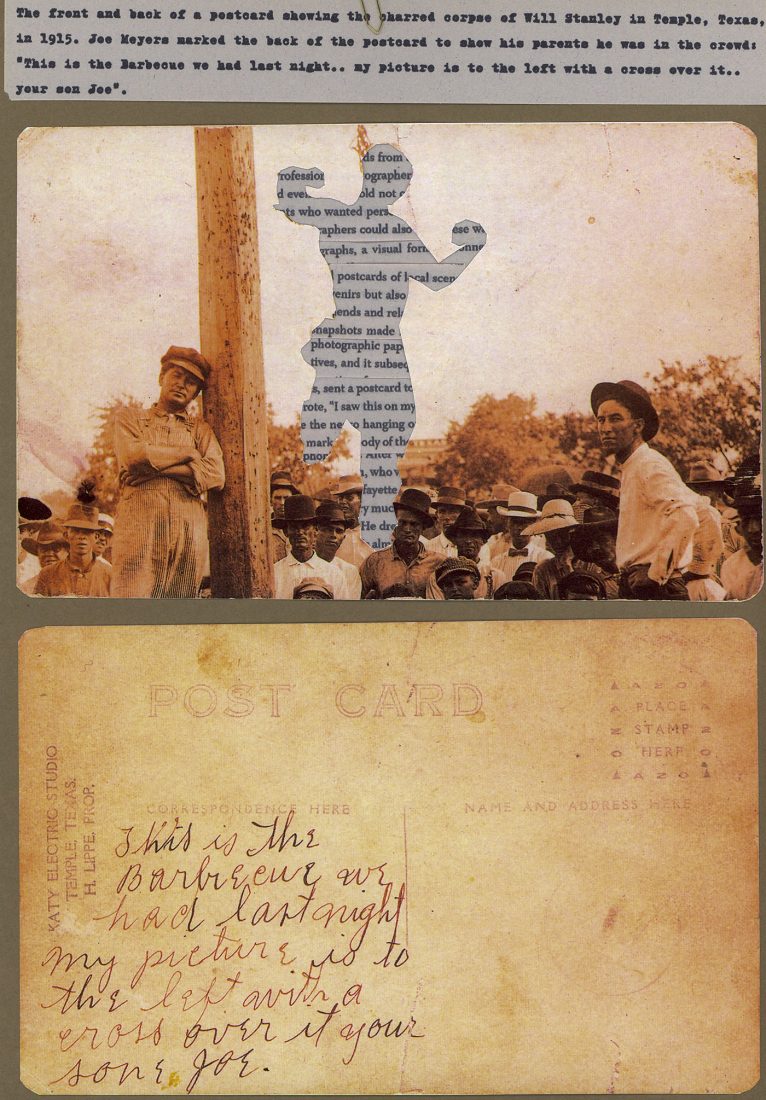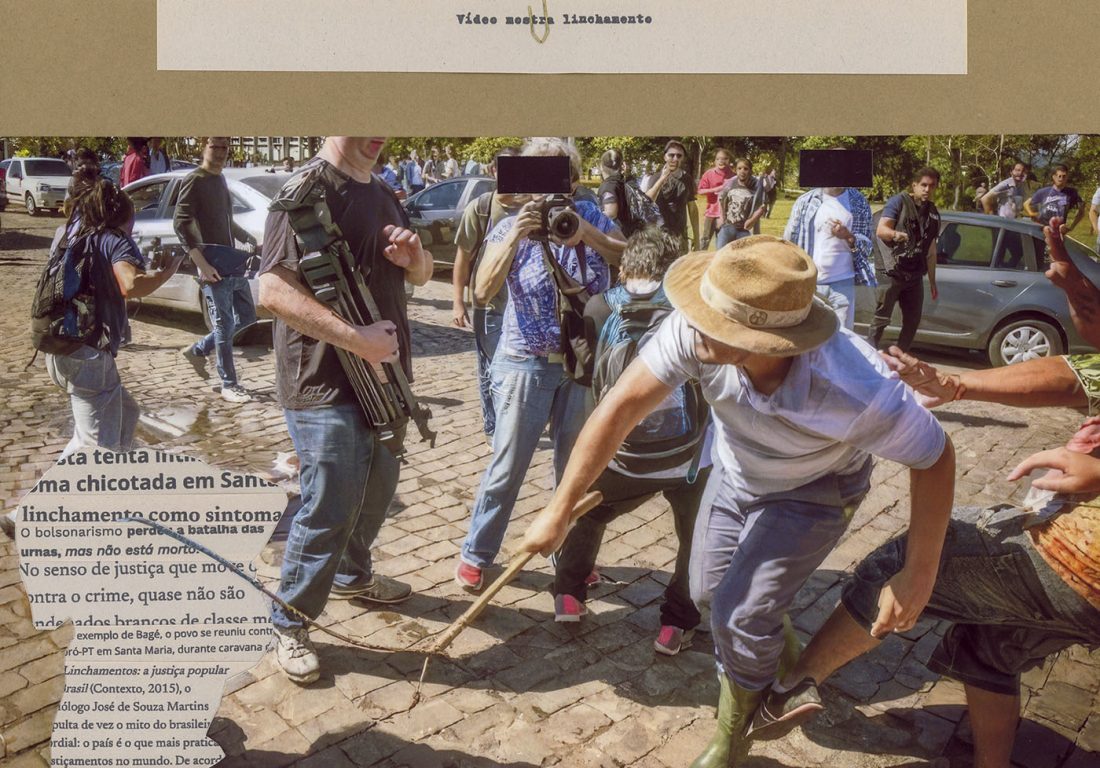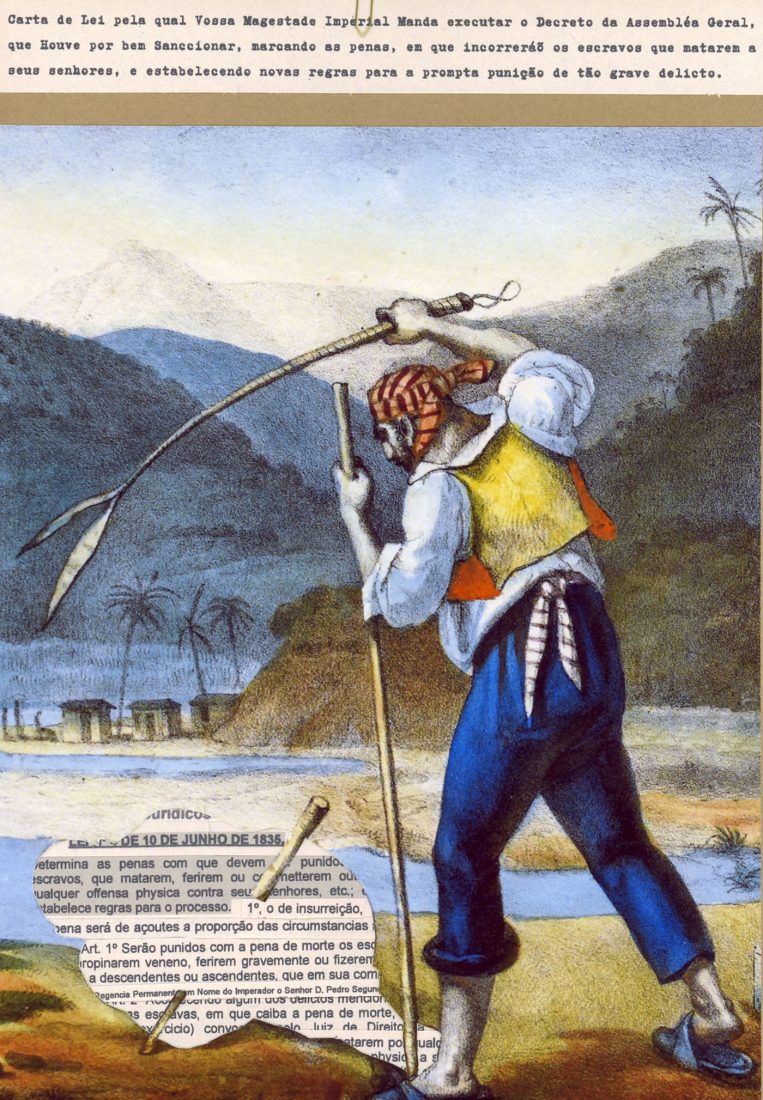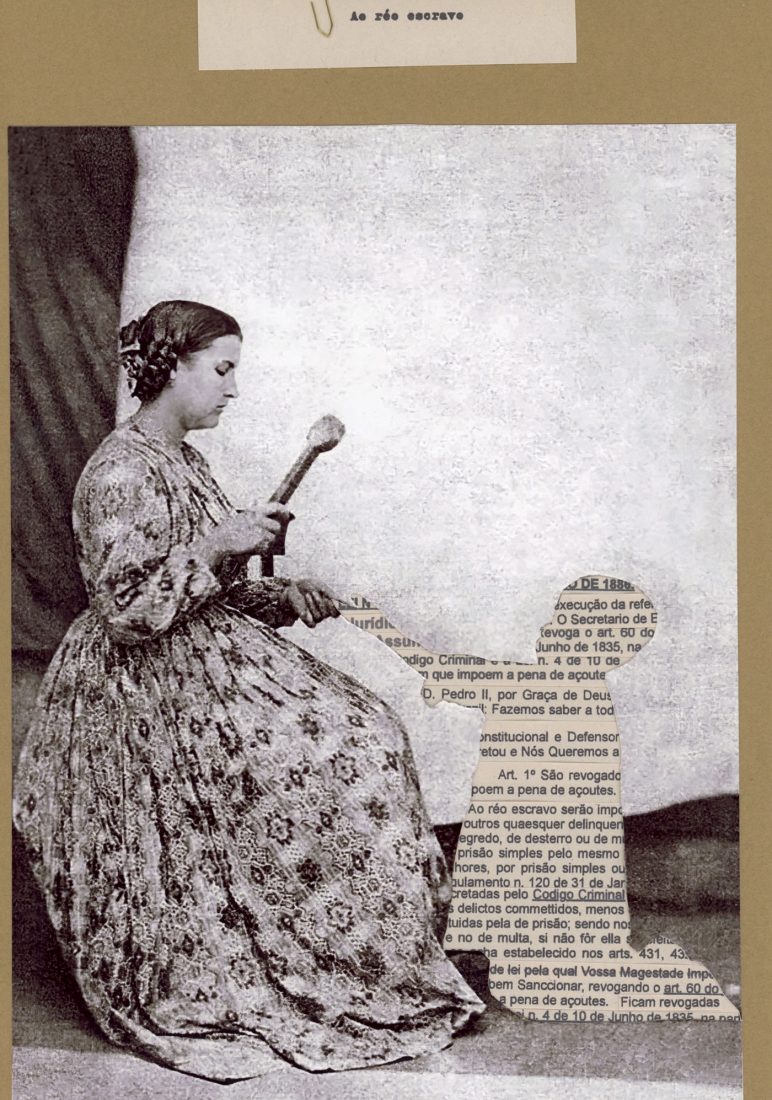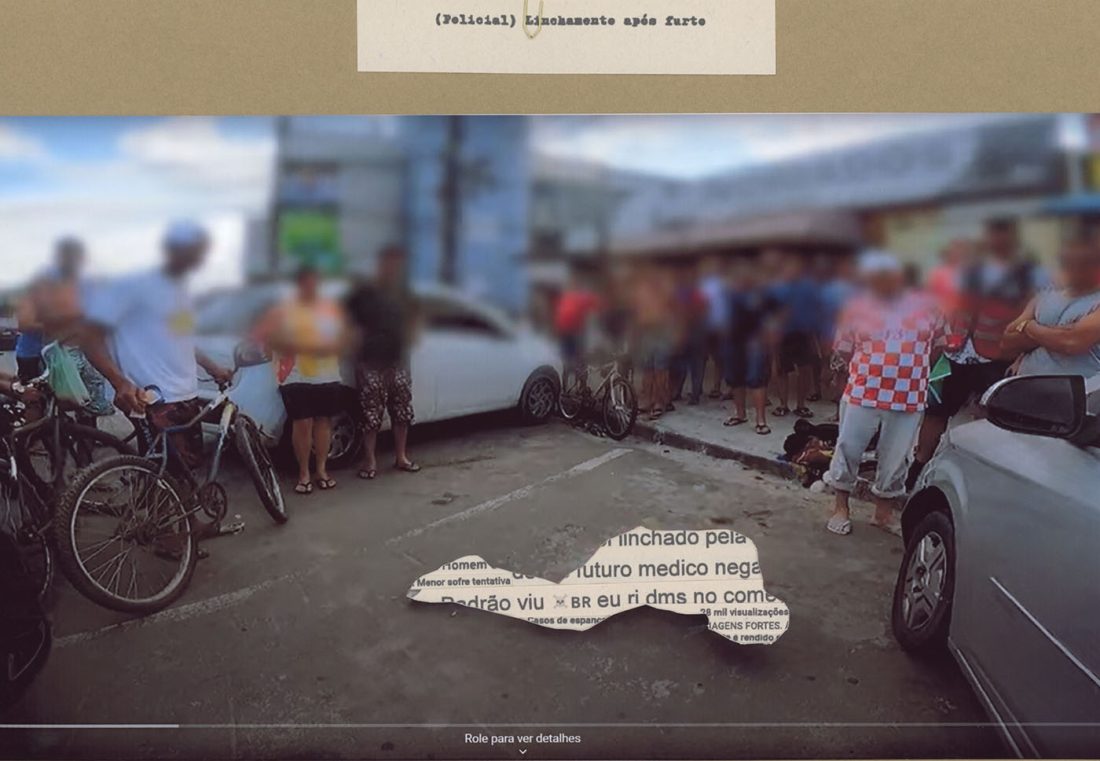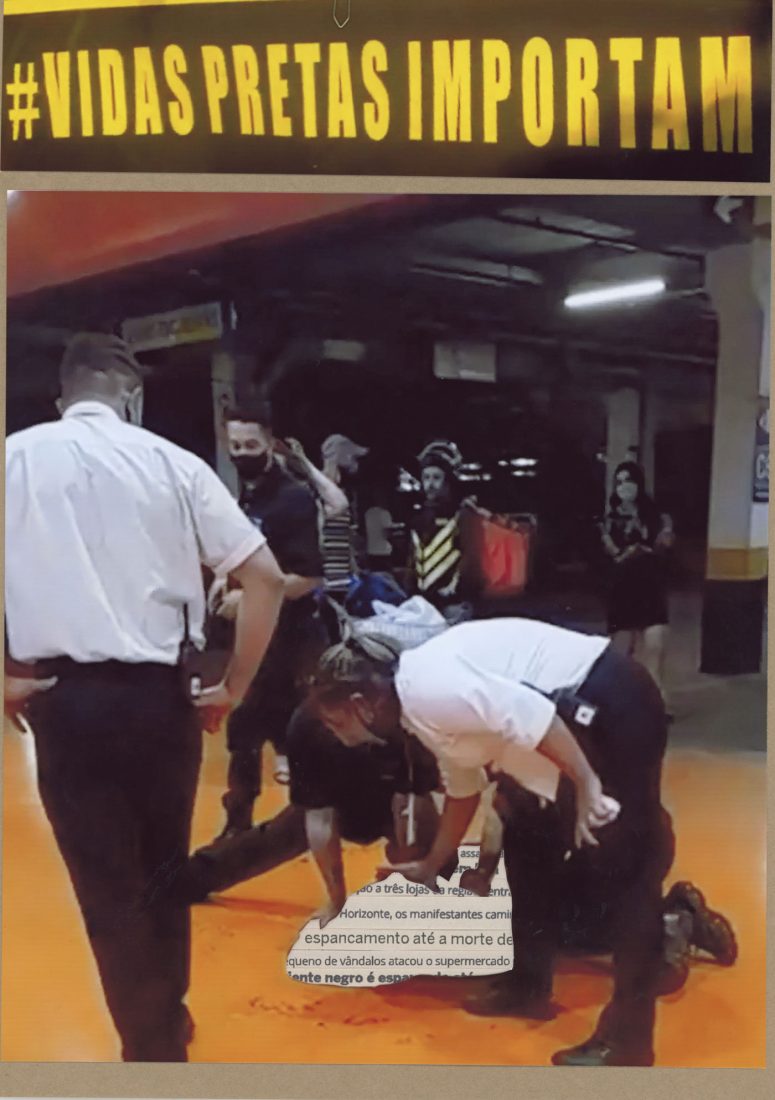Transparency
What if, instead of the spectacle of black suffering, the exposure of the body of the tortured, mutilated and killed victim in popular lynchings, we paid attention to the aggressors and the spectators, voyeurs or witnesses to the brutality?
By exhuming the black bodies from the images, do I make the viewer’s precarious empathy with the victims impossible? Do I make the aggressors and (their accomplices?) the spectators of the scene the target of the gaze? And what could happen if we remove the lynched black bodies from the image? In this series, the removal of the victimized black bodies reveals fragments of the texts (discursive system) that subscribe to them within an ethic in which both their violent death and the economic circuit surrounding the image of their bodies are naturalized.
Transparency is the name that philosopher Denise Ferreira da Silva gives to the onto-epistemological and ethical thesis produced by modern philosophers and scientists who justify scenes of violence against black bodies, always in defense of property. The link between race and capital is latent in these images of violence, which were sometimes legitimized by law and sometimes not. Colonial (physical) and racial (symbolic) violence are cultural. In this work, I observe how it materializes in gestures and texts, in visual archive materials that flood the internet networks and, in a diffuse way, either glorify or repudiate such acts of barbarism.
The texts were collected from comments on lynchings on Youtube (Brazil), comments from the time that circulated in newspapers and magazines compiled in the book Without Sanctuary (USA), articles from Brazilian newspapers, Brazilian criminal legislation from different periods and the book Text of the book Lynching and Spectacle: Witnessing Racial Violence in America, 1890-1940.
Some images of lynchings in the USA in the 20th century are still sold on digital visual databases. At the time they were made, they were marketed as postcards. Even today, profit is made from the spectacle of black suffering.

